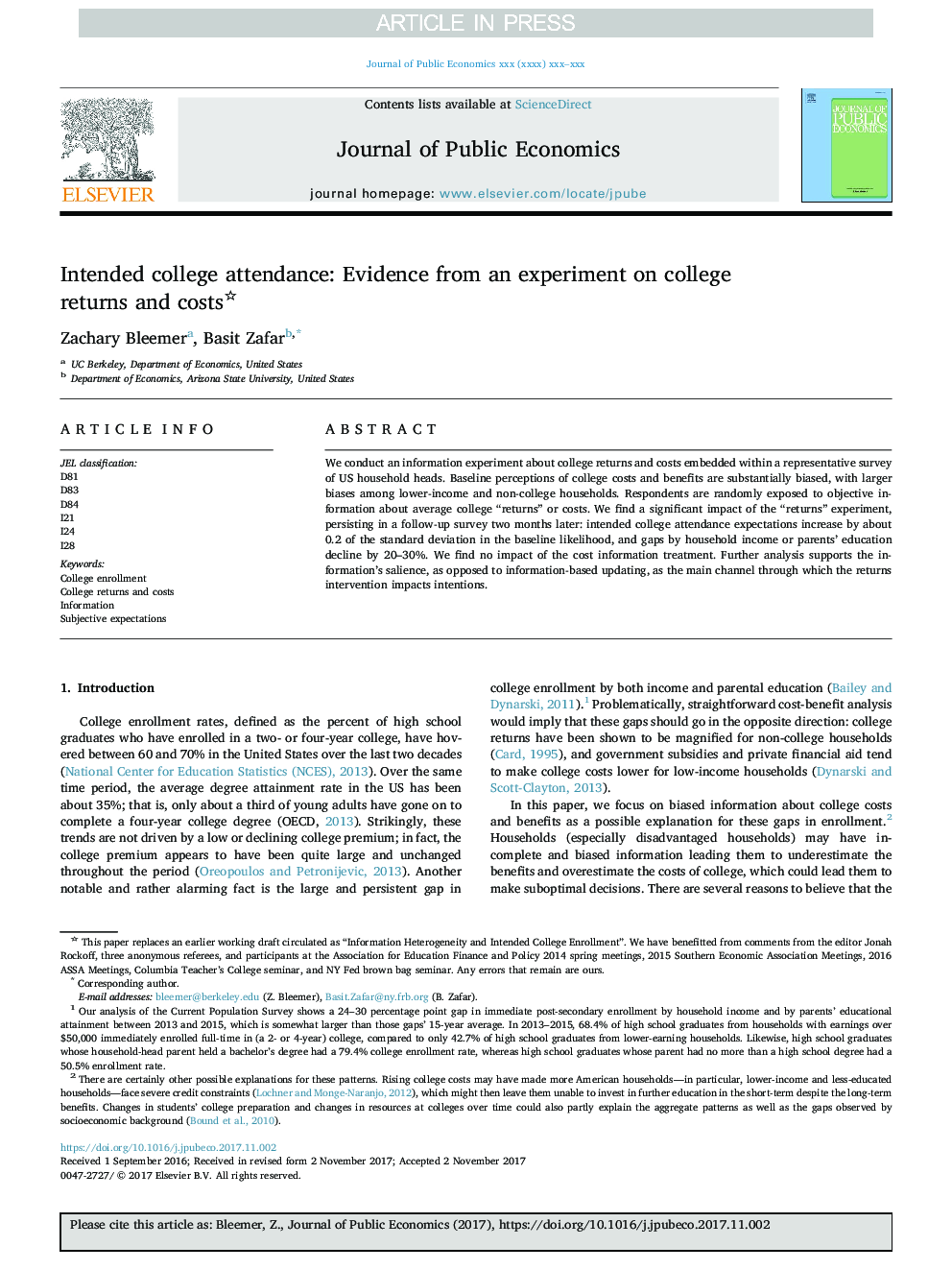| Article ID | Journal | Published Year | Pages | File Type |
|---|---|---|---|---|
| 7369690 | Journal of Public Economics | 2018 | 28 Pages |
Abstract
We conduct an information experiment about college returns and costs embedded within a representative survey of US household heads. Baseline perceptions of college costs and benefits are substantially biased, with larger biases among lower-income and non-college households. Respondents are randomly exposed to objective information about average college “returns” or costs. We find a significant impact of the “returns” experiment, persisting in a follow-up survey two months later: intended college attendance expectations increase by about 0.2 of the standard deviation in the baseline likelihood, and gaps by household income or parents' education decline by 20-30%. We find no impact of the cost information treatment. Further analysis supports the information's salience, as opposed to information-based updating, as the main channel through which the returns intervention impacts intentions.
Related Topics
Social Sciences and Humanities
Economics, Econometrics and Finance
Economics and Econometrics
Authors
Zachary Bleemer, Basit Zafar,
